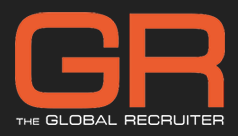Research from Resource Guru’s Agency Overworking Report 2025 has found that one in five (20 per cent) UK agency workers say AI has actually increased their workload. The report states that client expectations around AI are creating hidden pressures inside agencies, and there’s a warning that this is driving unsustainable workloads and rising burnout.
Agency life has always been demanding, with long hours, tight margins and client pressures. But new data shows a fresh factor is fuelling the strain: artificial intelligence. Despite the hype around AI as a shortcut to faster, cheaper campaigns without sacrificing quality, the reality inside agencies is very different. AI is piling new layers of hidden work onto agency teams.
Instead of streamlining delivery, AI has created new, hidden layers of work. Teams are spending more time building briefs and templates to coax usable assets from AI tools. They are fixing brittle outputs riddled with errors and hallucinations, which can often take longer than doing the work traditionally. They are also managing compliance and client expectations, from privacy checks to explaining what AI can and can’t do.
These hidden costs are mistaken for efficiencies. Clients may perceive there are savings where, in fact, extra layers of work are involved, and without the right boundaries, that pressure falls back on teams.
These pressures are already being felt inside agencies. Simon Tokic, Co-Founder and Managing Director at agency Mind Methods, shares one recent project: “We’d hit every milestone on a brand project where copywriting wasn’t in scope,” he says. “As a goodwill extra, we ran our research and messaging logic through an LLM to illustrate tone and structure. The client fixated on whether the words were “AI-generated”, then questioned the value of the entire engagement.
“Despite 80+ additional unbilled, out-of-scope hours and meticulous documentation, they disputed fees. It wasn’t the tech that failed; it was perception, expectation and boundaries.”
Sean Begg Flint, Founder & Director of agency Position Digital, believes client expectations are creating pressure across the industry: “We’ve had clients ask outright whether AI should cut delivery times in half, or whether fees should shrink because an algorithm is involved. Those conversations show how far expectations have drifted from reality. If agencies keep absorbing that pressure, it’s not just teams that suffer, client relationships and business models start to break down too.”
And these strains pile onto problems that were already acute: 46 per cent of burnt-out agency workers blame demanding clients, and 30 per cent cite unrealistic deadlines, according to the report. Agency workers report cancelled holidays, sleepless nights and missed family time, with 23 per cent reconsidering their future in their roles due to under-resourced teams.
For Stuart McLachlan, Marketing Lead at Resource Guru, the challenge is clear: AI can be transformative, but only if paired with the right systems to protect teams: “AI has the power to transform agency life for the better,” he says. “However, teams need to set clear boundaries and have the right resource management and time tracking systems in place to provide visibility around AI tasks and overall capacity. Without that, hidden tasks go untracked, workloads spiral, and AI risks fuelling the very burnout it was supposed to help solve.”


